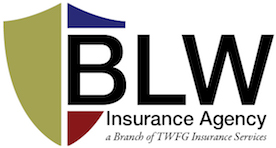Inflation is hitting everyone where it hurts. From groceries to gas and basic necessities, there aren’t too many things we can count on to stay affordable. Home and auto insurance are no exceptions.
If you’re up for renewal, you may have noticed your home and auto insurance premiums are higher—and if you read the fine print, you might find that some of your benefits are being clawed back, too.
Rates increased, on average, 12% in 2023 and 16.5% in 2024. Industry analysts predict that rates will rise an additional 7.5% in 2025, but some states may see an even bigger jump. California, Washington, and New Jersey may see auto premiums increase by over 15%, representing the most significant bump nationwide.
Drivers with multiple violations may see their rates increase by 53-146%, depending on what state they are insured in.
Homeowner’s insurance has also risen significantly, with an average increase of 21%.
While there might be a logical explanation for rate increases, such as adding more coverage, your claims history, or modifications made to your home, the increases might not have anything to do with you.
Let’s break it down.
Why Inflation is Impacting Insurance Rates
Insurance companies have been inordinately challenged recently due to natural disasters like wildfires, hurricanes, and other extreme weather. The frequency and magnitude of these events and the number of claims filed all at once have pushed insurers to a tipping point and left many no choice but to stop offering new policies.
The cost of rebuilding has also risen sharply. Materials are more costly, labor costs have increased, and there is a severe skilled labor shortage in construction and most other “adjacent” industries.
In many cases, premiums will increase based on the level of risk for your area. However, specific coverage, such as for contents, rebuilding, and repairs, has also risen to accommodate the higher cost of satisfying claims.
As for auto insurance, the situation is similar. The cost of parts has increased and will likely continue to rise based on the current administration’s tariffs on the automotive industry.
Cars are more expensive to repair and harder to get parts for these days. Additionally, the prevalence of car and part theft is driving a sharp increase in claims. The longer it takes to get parts, the more it costs the insurer, as they often pay for rental vehicles while the car is getting fixed.
Scarcity, high demand, and broken supply chains have created a critical situation that’s showing no signs of easing any time soon. Unfortunately, the increased costs are being passed along to policyholders as there are few other options. If premiums stayed the same, most people would be underinsured.
What Policy Owners Can Do to Mitigate Insurance Inflation
Fortunately, we have a few suggestions to help you get a handle on your insurance premiums. Here are a few tips to help you navigate your policy renewal and possibly save a bit of money.
1. Shop around
Some insurers may raise their rates more than others. Speak to your insurance broker or request quotes from a few insurers to compare. The yearly savings can be quite significant.
2. Ask about discounts
Many insurers offer discounts for bundled policies. For example, if you bundle your car or multiple cars and your home through the same insurer, you will likely receive a 10% to 25% discount. Many insurers offer discounts for safe drivers, so be sure to ask about that.
3. Increase your deductible amount
The higher your deductible is, the lower your premiums will be. If you have a low deductible, consider raising it. Consider how much you’d be comfortable paying out-of-pocket if you needed to file a claim.
4. Adjust your coverage
Go through your policy carefully to understand what you’re covered for. Look at your optional coverage and think about what you can do without. For example, you might consider eliminating physical damage coverages to your older autos.
5. Work on your credit score
Most insurers use your credit score to set rates. Poor credit can mean paying up to 88% more for even the most basic coverage. Note-In CA, credit score is not used for underwriting or rating policies.
6. Maintain your property to reduce risk
Insurance companies consider claim likelihood as a basis for rates. Keep your home well-maintained and clear dry brush to reduce fire hazards in dry climates. Install protective features, like hurricane shutters, to reduce storm impact.
Final Thoughts
Don’t let rising insurance costs force you into making unfortunate decisions. Give us a call at 650-873-1255 and we’ll be happy to answer any questions you have about your Auto/Home risk and rates.


